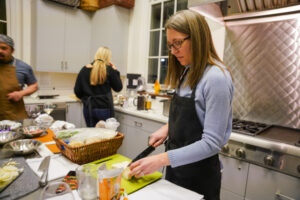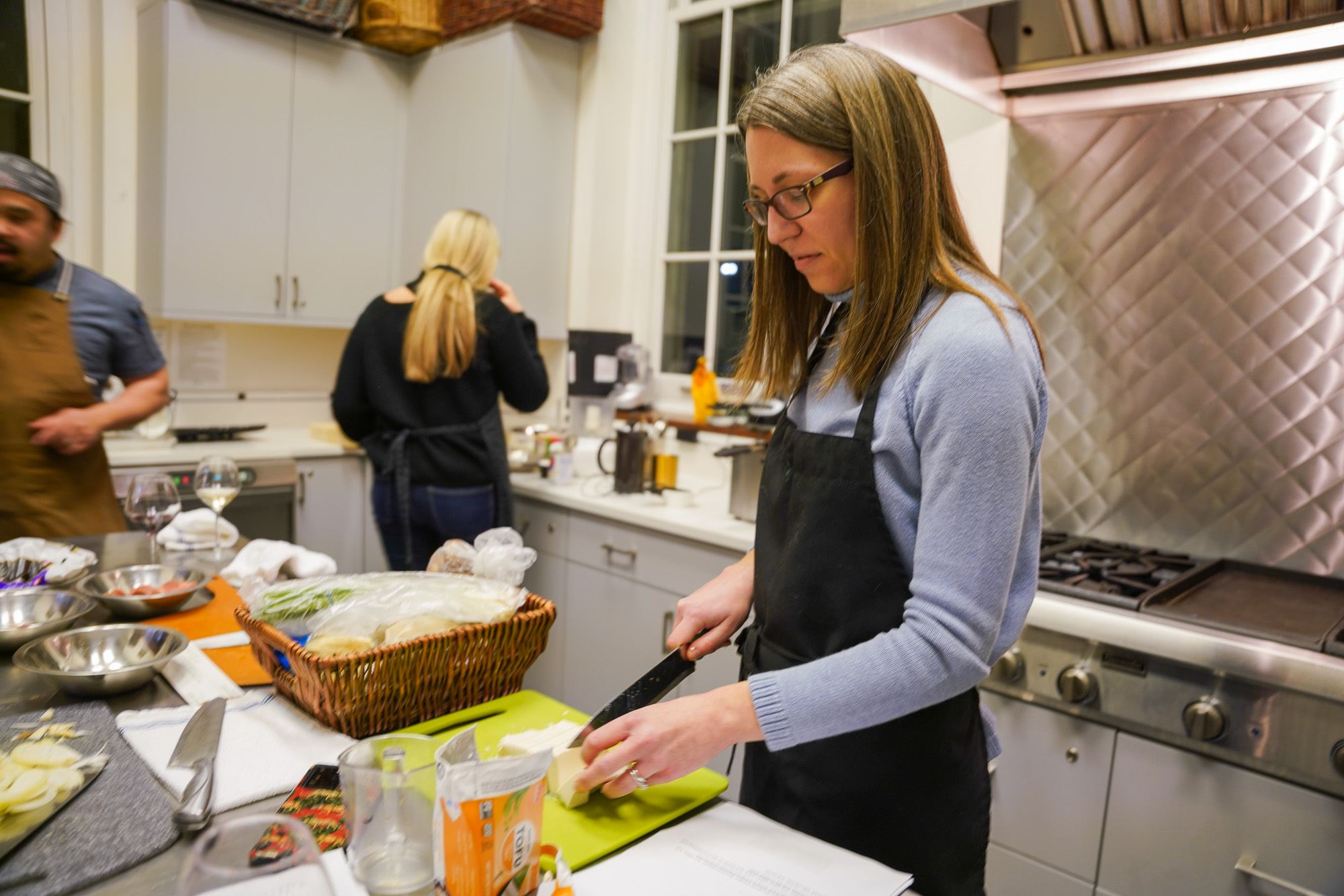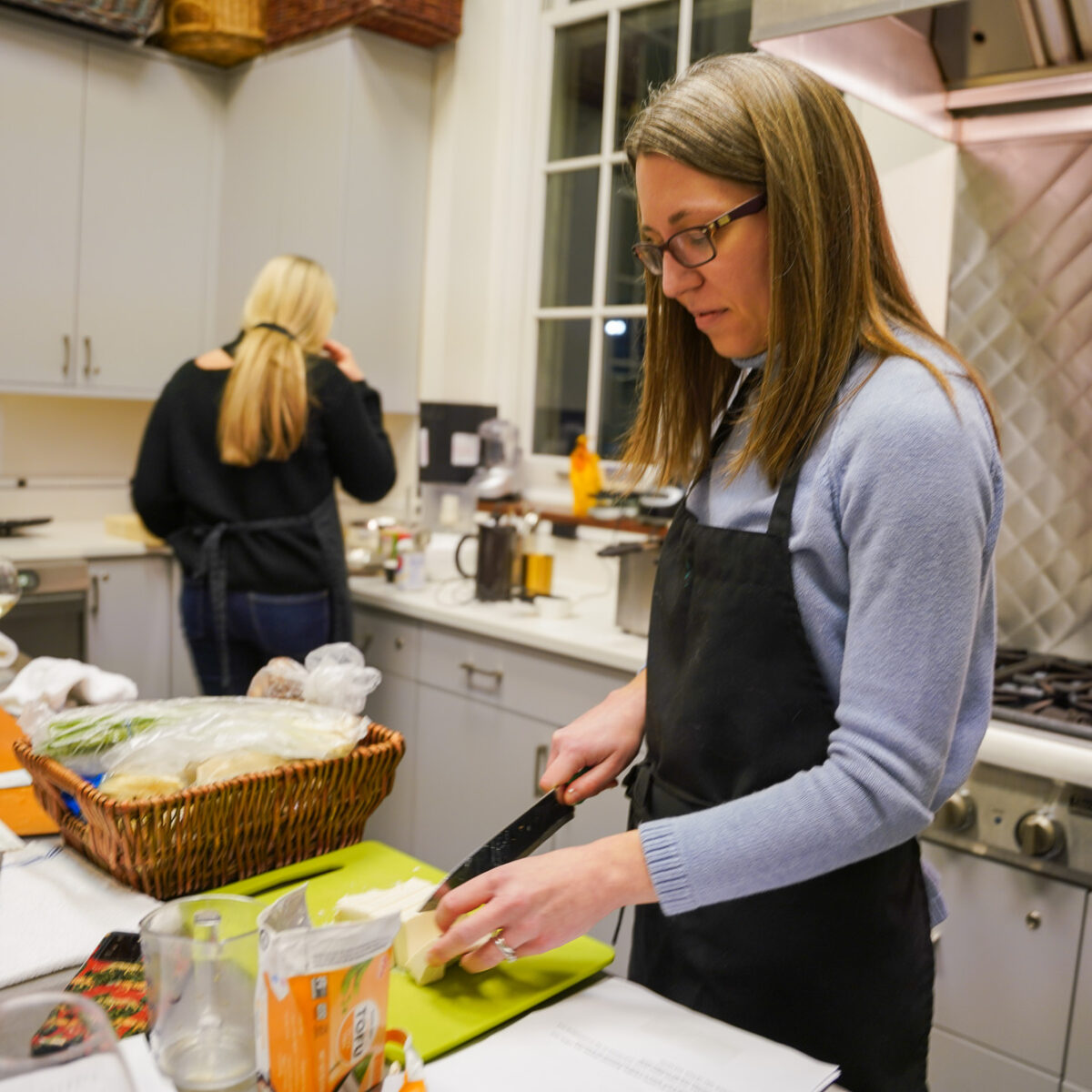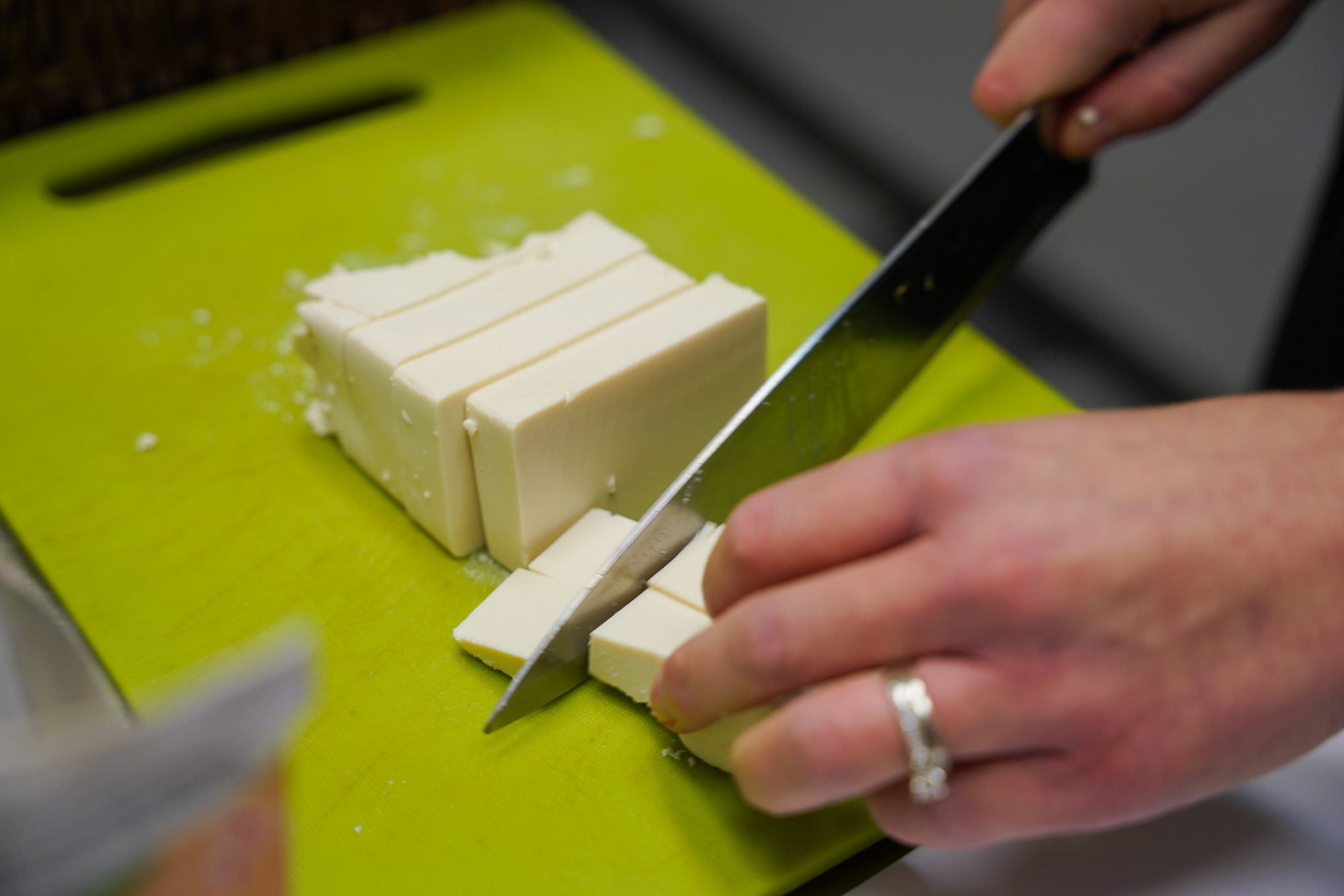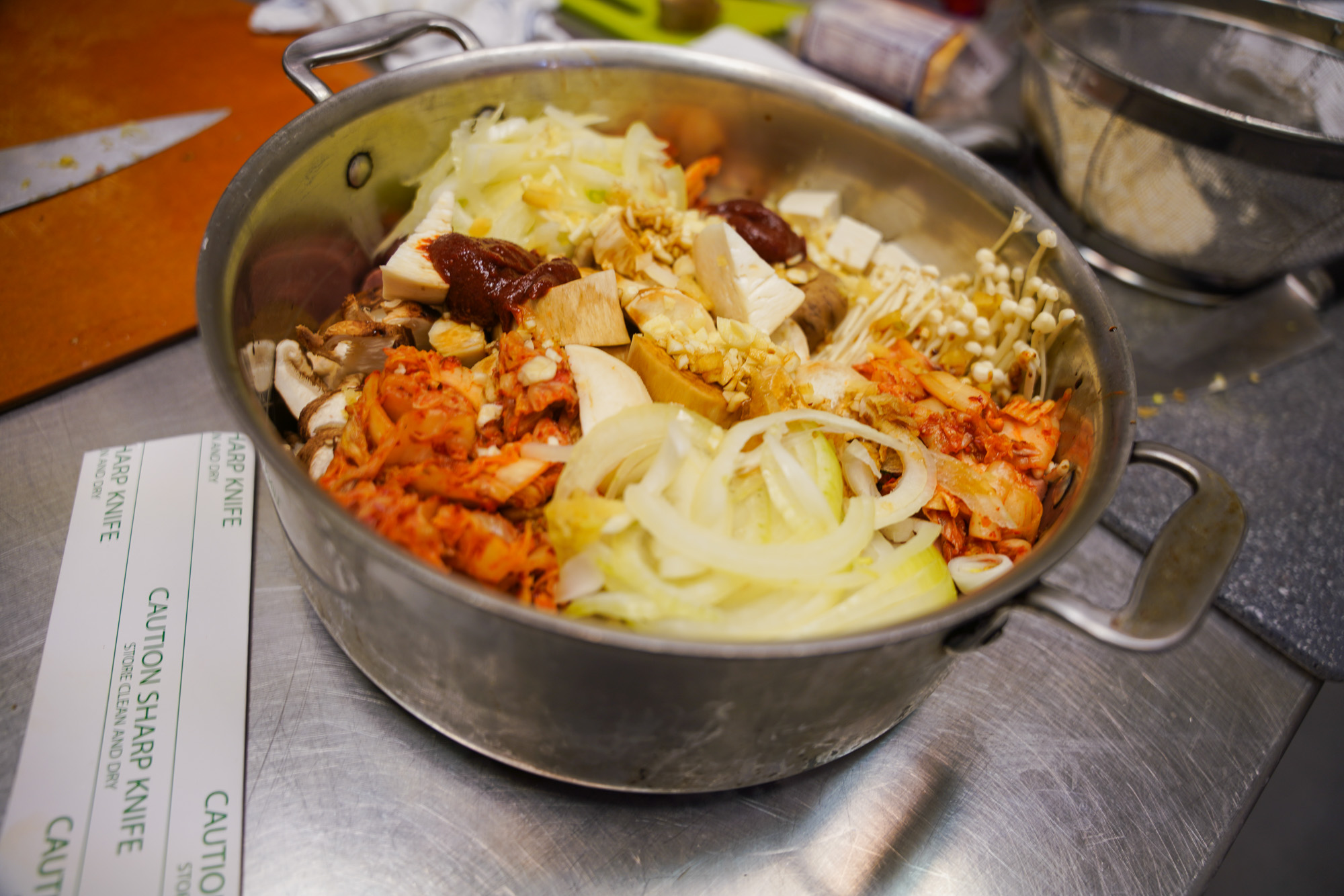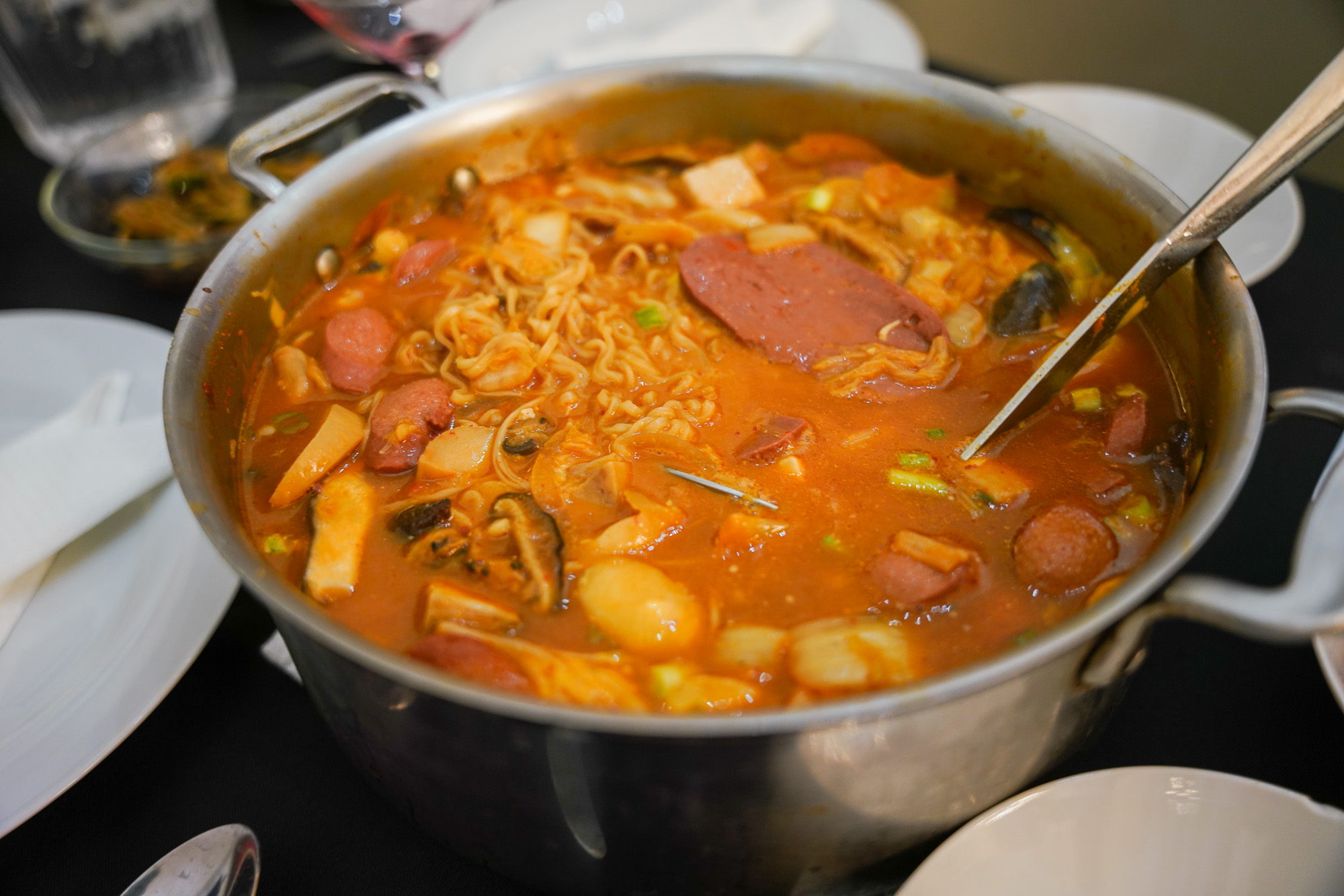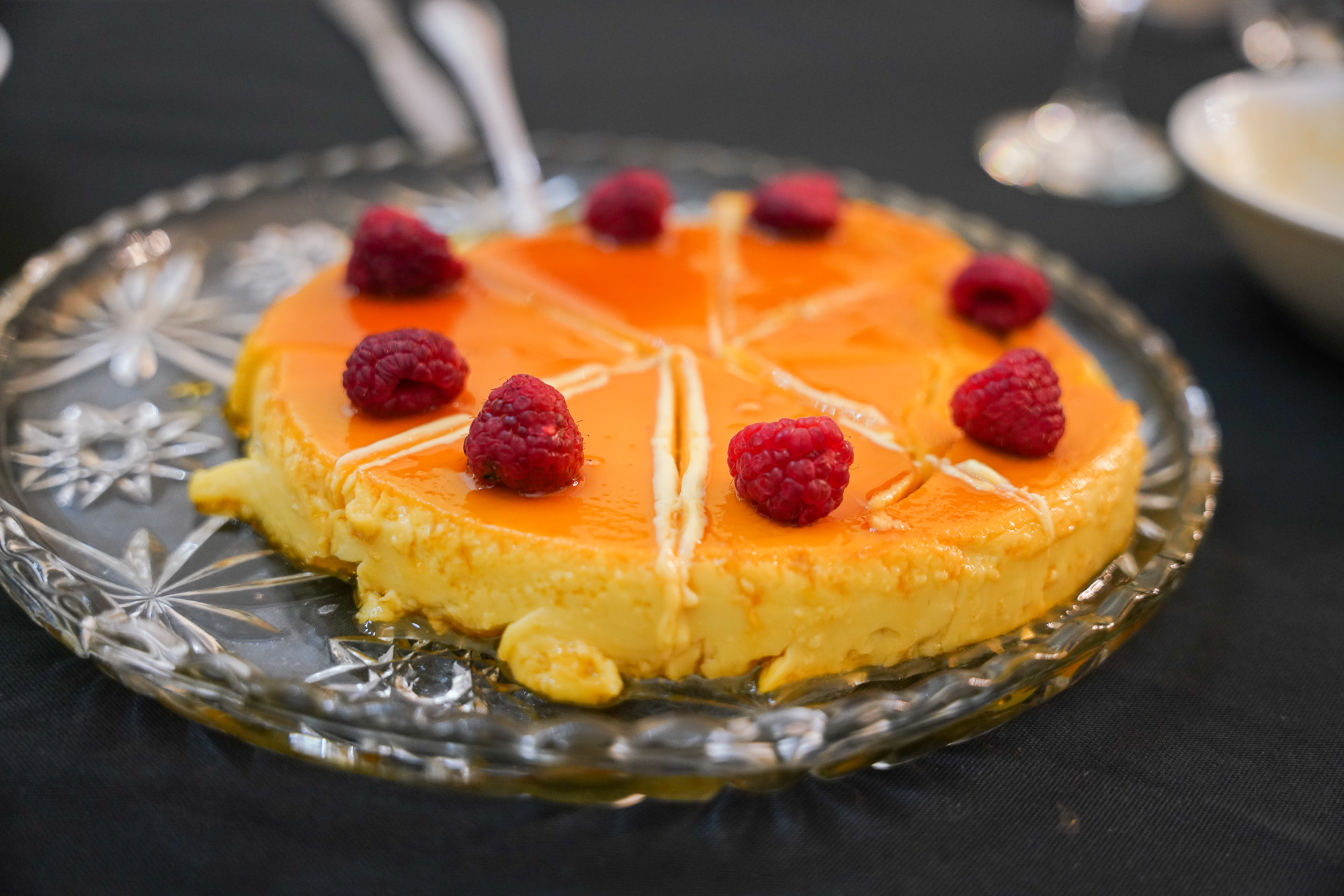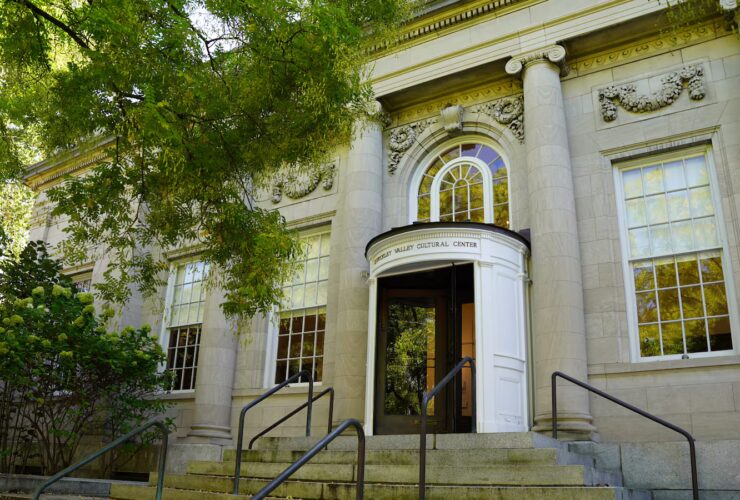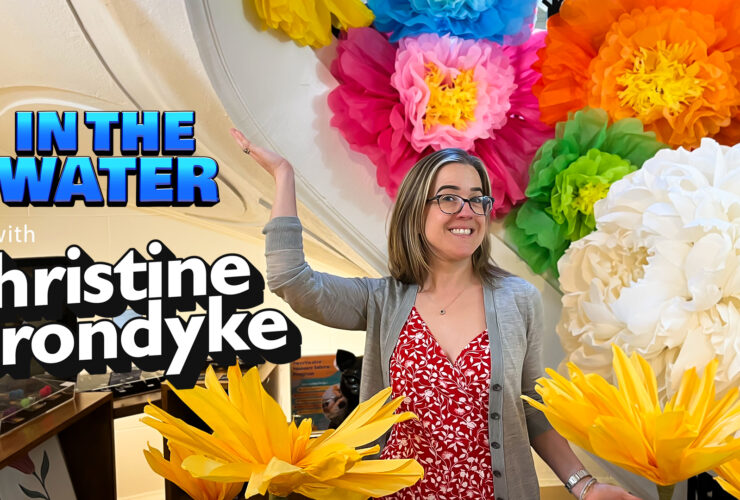In the Foods of Portugal class (one of our favorite food cultures in Europe), for example, the menu included Caldo Verde (a kale and sausage stew), Tripas a Moda do Porto (tripe and beans), Torricado (grilled bread and toppings), Bacalhau A Gomes De Sa (dried salted cod with caramelized onions and potato casserole), Polveo (grilled octopus), Mexilhoes a Bulhao Pato (steamed mussels), and Pasteis de Nata (baked custard in a pastry- arguably one of the finest sweets in all of Europe).
Upon first glance, this may seem like a bit of a daunting menu to learn to cook whether you are at home or a cooking school. But these dishes were carefully selected to be easy-to-learn, quick to make, and, in our case at least, perhaps even prepared ahead of time if they required a bit too long of prep time for a conventional cooking class (we had a leche flan that we received a recipe for, but due to the time required to set it was prepared in advance).
Likewise, students in a cooking class at Sweetwater are not expected to prepare all of these dishes over the course of an evening. Instead, students are split up into either individual or team projects to tackle one or two of the dishes featured while giving hands-on guidance from the instructor. This helps the entire meal come together in a relatively brisk period of time, where all students then come together to eat at the end with one massive feast.
During our class, Angie and I were assigned to make Budea-Jjigae, a Korean stew with kimchi, a boatload of vegetables and mushrooms, hot dogs and Spam, and American cheese. Yes, you read that right. And yes, it is quite delicious. While the ingredient list for this one was quite long, the ultimate preparation of this one was to prep all the ingredients, layer them in a pot, cover with chicken broth, simmer for about 30 minutes, top with a few fresh vegetables and cheese, mix, and serve. It really ended up being quite simple!
This was a wonderful dish to learn in a cooking class because it took what could have otherwise looked daunting, broke it down into its core parts, showcased just how easy it was to make, and taught everyone that it was delicious, too. (Yes, the Spam, hot dogs, and cheese really worked in this one- it is a comfort food dish with reasonably priced protein for a reason!)
Chef Andrew Makes the Experience
Perhaps the best part about the cooking classes at Sweetwater has less to do with the location or setup and everything to do with the instructor. Andrew Alvarez is a local chef that has worked at some of the best restaurants in the city and has a passion for sharing authentic international recipes, regional history (as told via food), and so much more.
In the case of our Korean stew, for example, Andrew went to great lengths to explain the cultural significance of adding things like hot dogs, Spam, and American cheese into the dish, and its importance is not lost on us as a takeaway along with the recipes (as with most things, post-war accessibility to proteins resulted in creative dishes which have now become comfort food which likely contributed to the nickname Army Base Stew).
As such, Andrew has a knack for really inspiring students to get into the kitchen and cook, learn more about international cuisines and their histories, and left us wanting to return to take even more classes at Sweetwater (hopefully with him as an instructor, of course). Our ultimate goal of taking any cooking classes is often to be inspired to get outside of the box to cook dishes we otherwise would not attempt to tackle, and Andrew and the team at Sweetwater have accomplished this and then some with their cooking classes.
We simply cannot wait to return for more!
